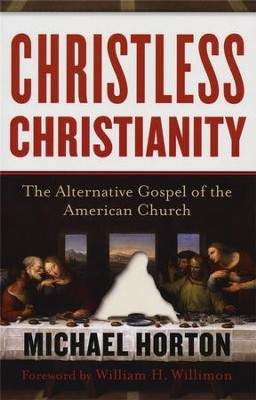Although Geerhardus Vos is best known as a biblical theologian, this is not an essay about biblical theology. Nor does it deal with his well-known 1894 Princeton inaugural address. It is instead a reflection on important aspects of the larger theological method that . . . Continue reading →
Responses To TE Johnson On The Nature And Status Of Same-Sex Attraction
…TE Johnson’s testimony establishes that he has seen himself as same-sex attracted since he was 11 years old. He says he has never had an attraction to a woman and that he finds the idea of looking at a woman lustfully “disgusting.” . . . Continue reading →
William Perkins On Justification (2)
In connection with Trent and Bellarmine’s stance on purgatory and the sacrifice of the Mass was Rome’s doctrine of a second justification. Bellarmine’s Scriptural basis for a second justification was Romans 3—which he saw as the first justification, and James 2—which he saw as the second justification. For Perkins, James 2 was for the justified because of Christ, “outward testimonies of the truth of our faith and profession, proving that the grace of our hearts is not in hypocrisy, but in truth and sincerity.” In other words, James 2 spoke not of justification in the same sense as Paul in Romans, but in a completely different sense, scope, and design, James 2:21 is in the demonstrative for Abraham’s “works did testify that his faith was true and sincere. Continue reading →
Was The Rise And Fall Of Mars Hill Podcast Series A Mistake?
This is the argument of Jason Estopinal. He appeals to Proverbs 10:19, 1 Thessalonians 4:11; Philippians 4:8, Proverbs 3:30, and Matthew 18 and concludes that Christians should not be fascinated by what one critic has called the “failure porn” of the Christianity Today podcast . . . Continue reading →
Keith Getty’s Critique Of Contemporary Worship Music Is A Step In The Right Direction
In 2008, Mike Horton called attention to the phenomenon of a radically subjective turn in American evangelicalism, in Christless Christianity. Unfortunately, a single book diagnosing the deep sickness of American evangelical Christianity was not enough to turn the tide. In that volume . . . Continue reading →
Discovering The Reformed Confession: The Real Tony’s Journey To Reformed Theology, Piety, And Practice
All of us have a story, but not all have a “Reformation” story. Here’s mine: I was baptized as an infant and was raised in the American Lutheran Church, which later became a part of the Evangelical Lutheran Church in America (ELCA). . . . Continue reading →
William Perkins On Justification
Perkins objected to Rome’s sacrifice of the Mass. For Perkins, this doctrine was attached to erroneous views of Christology, Christ’s propitiatory suffering unto death, and in turn the doctrine of justification. One of Perkins’s clearest Christological statements is found in his treatise, A Warning Against the Idolatry of the Last Times (1601), where he wrote, “For He in one person is perfect God and perfect man, our only Redeemer all-sufficient in Himself, and therefore perfect king, priest, prophet; without either partner or fellow in the work of man’s salvation.” Continue reading →
Heidelcast 202—What Must A Christian Believe? (19): The Forgiveness Of Sins (1)
This is episode 19 in the series, What Must A Christian Believe? In our survey of the rule of faith, i.e., the Apostles’ Creed, we have reached the tenth article, “the forgiveness of sins.” That phrase does not occur in the earliest . . . Continue reading →
What’s Going on Right Now: Sex, Race, Politics, & Power with Dr. W Robert Godfrey (6)
In the sixth session of Bob Godfrey’s Sunday school class at the Escondido URC, he traces the effects of the Enlightenment upon the West. Drawing upon Carl Becker’s work he highlights four key tenets of the movement: (1) that man is not natively . . . Continue reading →
Straight Talk About Homophobia
In just a few short years the noun Homophobia has become one of the most powerful words in the English language. It has an interesting, if brief, history. It was derived from the combination of two Greek loan words brought into English, . . . Continue reading →
Theological Liberalism And Drag Queens In The Church
How Did Methodists Get From Wesley To Drag Queens?
Indiana United Methodist minister Craig Duke donned a big pink wig, lots of purple eye shadow, bright red lipstick, and high heels while appearing on a recent HBO episode of “We’re Here.” The series features HBO drag queen hosts visiting small towns to recruit local drag queens to perform. Continue reading →
The Church’s Own Cancel Culture
We live in a day when those things that stand in the way of the prevailing narrative of the culture are canceled, banished out of existence as we once knew them. As much as we are rightly worried about cancel culture in . . . Continue reading →
Shrier: One Need Not Be A Troll To Find Oneself At The Center Of Controversy. One Need Only Refuse To Submit To The Mob
I began writing a few op-eds for our local Jewish paper, one of which was spotted by a Wall Street Journal editor, who invited me to submit to the Wall Street Journal. I did, and in the course of that year, published . . . Continue reading →
What Should PCA Confessionalists Do?
It is no secret that the Presbyterian Church in America is in turmoil. No one denies the existence of conflict and consternation. Though some consider the strife to be unjustified, even they do not believe the strife will soon cease or be . . . Continue reading →
Sophie And The Heidelberg Cat
I am not sure why it took me so long to get to Sophie and the Heidelberg Cat published in 2019. Perhaps it is because we do not have children in the house but Harrison Perkins, frequent contributor to this space, mentioned . . . Continue reading →
On Being Reformed Discounted 50% Now Until December 31
That should bring the price of the hardcopy to about $35.o0 and the e-book to about $27.50, which is approaching a reasonable price. Continue reading
Bond And A Betrayal Culture
There are two problematic layers built into No Time to Die’s manipulative betrayal of Bond fans. The first, and arguably less substantive, is the film’s abandonment of the 007 formula. Movie critics have praised the decision to depart from the standard format of find the villain, defeat the villain, get the girl, get away with a dryly humorous quip. This praise, however, is precisely what reveals the elitist nature of the modern entertainment industry. There is a necessary question: If twenty-five movies (plus the novels and a few video games) have had immense commercial success for sixty years while abiding by the same formula, what suggests that the audience wants the films to depart from the formula? Quite obviously, it seems that we continue to pay money to watch Bond movies because we want the formula. If we wanted something else, we would see a different movie. Continue reading →
Religious Freedom Watch: SCOTUS To Consider Whether Religious Schools May Do Religious Things
Today, the Supreme Court will hear arguments in Carson v. Makin, a case that concerns whether Maine may constitutionally exclude religious schools from participating in the state’s private-school tuition-assistance program. To those who have been paying attention to recent Supreme Court decisions . . . Continue reading →
Religious Freedom Watch: Federal Courts Continue Turning Back Federal Mandate Regime
A federal judge Tuesday blocked a national COVID-19 vaccine mandate that would have required private government contractors to get their shots, dealing yet another blow to the Biden administration’s jab push. The mandate, set to take hold Jan. 4, was the latest . . . Continue reading →
In Case You Doubt The Pauline-Augustinian Doctrine Of Human Corruption
It Is Possible To Sear Ones Conscience
I feel that abortion involves taking a human life… Having decided that taking a life by abortion is sometimes the lesser evil,








